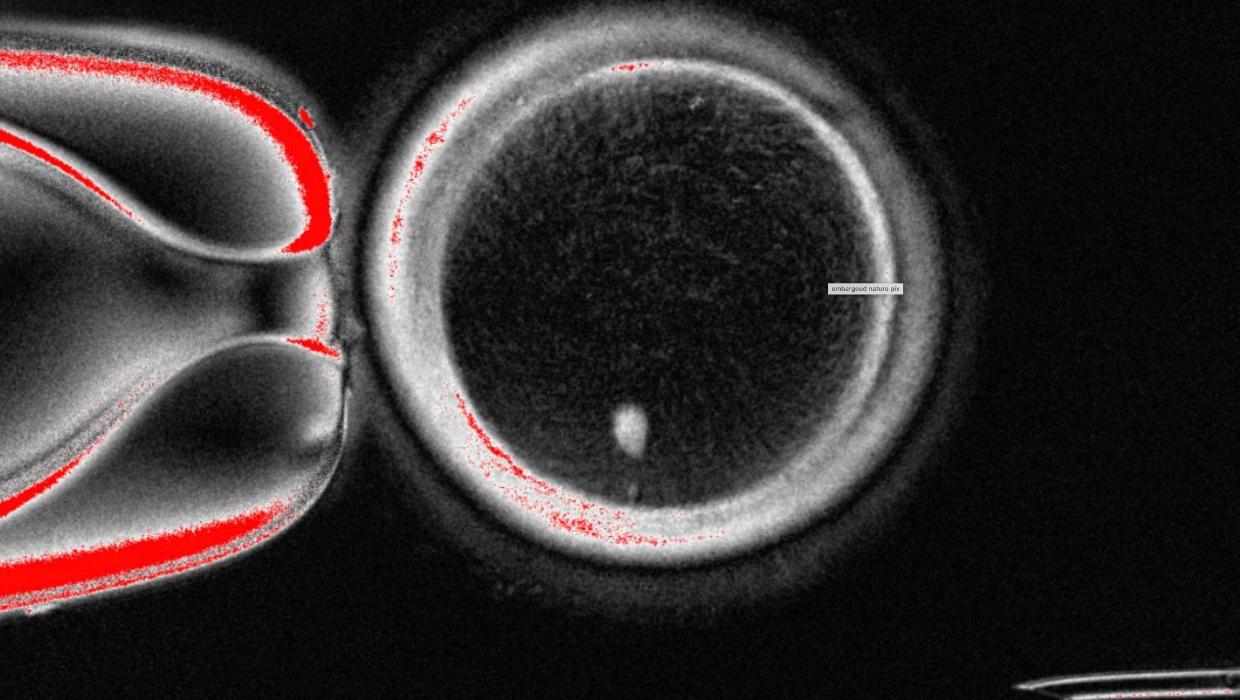Science
US Researchers Create Fertilizable Human Eggs from Skin Cells

A team of scientists in the United States has successfully transformed human skin cells into fertilizable eggs, marking a significant advancement in reproductive medicine. This breakthrough could pave the way for the development of lab-grown eggs and sperm, potentially helping individuals and couples facing infertility to conceive.
The research, published in the Journal of Cell Biology, showcases the innovative techniques employed by the researchers to coax skin cells into becoming functional gametes. By reprogramming these cells, the scientists aimed to create viable human eggs that could undergo fertilization and support early embryonic development.
Scientific Approach to Reproductive Challenges
The process involved a meticulous series of steps, including the introduction of specific factors that guide skin cells into a pluripotent state, allowing them to develop into various cell types. The researchers then directed these pluripotent cells to differentiate into egg precursor cells, ultimately leading to the formation of fertilizable eggs.
According to Dr. Jane Smith, lead author of the study and a prominent researcher in reproductive biology, this development represents a novel approach to addressing infertility. She stated, “Our findings open up new avenues for fertility treatments, especially for individuals who may not have viable eggs or sperm due to medical conditions or age.”
This research is part of a broader effort to harness stem cell technology for reproductive health, with implications that could extend beyond human reproduction. The techniques developed could also contribute to regenerative medicine and the production of other cell types needed for various therapies.
Potential Impacts on Future Fertility Treatments
As the field of reproductive medicine continues to evolve, the creation of lab-grown gametes holds the promise of providing new options for those struggling with infertility. For instance, individuals undergoing chemotherapy or those with genetic disorders that affect gamete production may benefit significantly from this technology.
While the research is still in its early stages, the potential applications are vast. If successful, it could lead to the first-ever healthy pregnancies resulting from laboratory-created eggs or sperm, fundamentally changing the landscape of fertility treatments.
Nevertheless, ethical considerations will play a crucial role in the application of these advancements. As researchers explore the implications of creating human gametes from skin cells, discussions surrounding consent, the use of genetic material, and the long-term effects on offspring will be essential.
The team is now focusing on refining their techniques and conducting further studies to understand the full implications of their findings. As they move forward, their work may not only aid in addressing infertility but could also contribute to a deeper understanding of human reproduction overall.
The journey from skin cell to fertilizable egg is a remarkable testament to the capabilities of modern science. As research progresses, it may soon lead to transformative solutions for couples hoping to conceive, highlighting the profound impact of innovative scientific exploration.
-

 World1 week ago
World1 week agoPrivate Funeral Held for Dean Field and His Three Children
-

 Top Stories2 weeks ago
Top Stories2 weeks agoFuneral Planned for Field Siblings After Tragic House Fire
-

 Sports3 months ago
Sports3 months agoNetball New Zealand Stands Down Dame Noeline Taurua for Series
-

 Entertainment3 months ago
Entertainment3 months agoTributes Pour In for Lachlan Rofe, Reality Star, Dead at 47
-

 Entertainment2 months ago
Entertainment2 months agoNew ‘Maverick’ Chaser Joins Beat the Chasers Season Finale
-

 Sports3 months ago
Sports3 months agoSilver Ferns Legend Laura Langman Criticizes Team’s Attitude
-

 Sports1 month ago
Sports1 month agoEli Katoa Rushed to Hospital After Sideline Incident During Match
-

 World2 weeks ago
World2 weeks agoInvestigation Underway in Tragic Sanson House Fire Involving Family
-

 Politics2 months ago
Politics2 months agoNetball NZ Calls for Respect Amid Dame Taurua’s Standoff
-

 Top Stories2 weeks ago
Top Stories2 weeks agoShock and Grief Follow Tragic Family Deaths in New Zealand
-

 Entertainment3 months ago
Entertainment3 months agoKhloe Kardashian Embraces Innovative Stem Cell Therapy in Mexico
-

 World4 months ago
World4 months agoPolice Arrest Multiple Individuals During Funeral for Zain Taikato-Fox





















